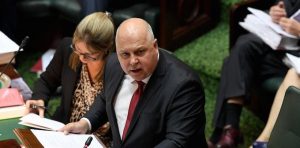Australia is a federation of states where the constitution sets out the guidelines for the relationship and form between the government and states. The constitution and states have concurrent power to create legislation on some matters, where in finance and trade, federal parliament control commonwealth expenditure, customs and exice, free trade between states and the power to give financial assistance to the states. Regulatory bodies in Australia such as the Council of Financial Regulators (CFR) don’t have legislative backing and are non-statutory however act as a means for cooperation and coordination within Australia’s financial sector, which impact business operations.
Regulations are designed to ensure fair competition, sufficient protection to relevant parties and integrity in the market. In times of crisis, such as COVID-19, a broad umbrella of operations such as Australian Intellectual Property Laws, Australian Business and Environment laws, Australian Import and Export laws, Financial reporting in Australia are impacted significantly. The Australian government guide to regulation has stated: “The Government has a clear approach to regulation: we will reduce the regulatory burden for individuals, businesses and community organisations.”
But what happens in times of crisis? Are these regulatory institutions amongst federal government and state bodies responsive and fair in events such as COIVD-19?
The Australian Securities and Investments Commission (ASIC) has decided to temporarily change its regulatory work and priorities to focus on the impact of COVID-19, delaying a number of activities such as consultations, reviews and reports and further providing weekly tracker of news and updated regulatory documents related to COVID-19. ASIC as a response to the pandemic is stepping up its market supervision ensuring investors are well informed heighten support for consumers who may be vulnerable to poor advice or needing assistance in times of hardship and providing regulatory relief and identifying measures to support small businesses until at least September 30, 2020.
CFR in response to the pandemic has said they’ll provide regulatory relief and enforce law pragmatically to ensure banks don’t foreclose on household and small business borrowers to aid economic fallouts and further adjusting the timing of regulatory initiatives given the impacts of COVID-19. ” The Australian Prudential Regulation Authority (APRA) and ASIC acknowledge the importance of the continued flow of credit to affected customers and industries in the current environment.” – APRA noted in March 2020. Since May 31, a total of $266 billion in loans have been deferred, and roughly $192 billion of this has been identified as housing loans and $56 billion as small business loans.
SOURCE: RBA TWITTER
The Reserve Bank of Australia (RBA) has lengthened liquidity it offers to commercial banks for six months or longer in reaction to the volatility and negative impact the global credit market has endured through coronavirus. So far, big Australian banks are strong enough to handle big debt and a freeze in credit markets, however Australia’s biggest concerns lies in whether business borrowers can keep afloat given the lack of cash flow in many sectors. For those able to start making repayments, they’re encouraged to do so. “Housing loans make up the majority of total loans granted repayment deferrals [at 34%], although small business loans have a higher incidence of repayment deferral,” the prudential regulator said in a statement. A continuation of regular updates on deferrals and repayments helps sustain community confidence in the banking system”.
The Federal government is supporting households and businesses with an economic support package worth $259 billion setting up the foundations for a strong economic recovery post COVID-19 and keeping Australian businesses alive through the JobKeeper scheme. $241.9 million has been dedicated to the International Freight Assistance Mechanism (IFAM), keeping international freight routes and international flights operational until the end of the year. “This temporary measure has provided an export lifeline to thousands of farmers, fishers and other exporters around Australia during the COVID-19 pandemic,” the Deputy Prime Minister said. Evictions for renters have been put on hold for the next 6 months for commercial and residential tenants under financial distress due to the pandemic.
The Victorian government has announced a ‘Business Support Package’ worth $534 million including cash grants for struggling businesses, mental health support for business owners, and relief for tourism operators to ensure they stay afloat and recover well afterwards. For commercial landlords in NSW, a new land tax relief package with a 3-month deferral available and can apply for a land tax concession of up to 25% of the 2020 calendar year.
Victorian Treasurer Tim Pallas advised that any supplementary measures will likely follow the Federal government’s update on July 23, in regard to its business support plans once the JobKeeper scheme comes to an end. In many ways, government on both federal and state levels are providing financial aid and regulatory bodies are recognising the crucial need for adapting and adjusting initiatives to support Australian citizens and businesses alike.
VICTORIAN TREASURER TIM PALLAS. AAP/JOE CASTRO
COVID-19 has turned tables around the world, quickly identifying the imperative need for regulatory bodies and governments to act in a timely manner, giving the support and financial aid needed to ensure businesses survive the pandemic and economic impacts. Australia and the Prime Minister Scott Morrison has handled the response to the pandemic quite well thus far, however recent cases and lock down in Victoria has put Australia’s recovery in a sticky spot. This has proved that you can do everything right, take the necessary steps to mitigate the aftereffects, but if you don’t finish the job properly the consequences can be dire. Slow and steady wins the race.
By Sophie Travers
Sophie is a keen global traveller finding her way through the maze of the business world. As a multicultural Australian, she avidly seeks to expand her horizons in International Business, Management and connecting with people through languages and culture.


